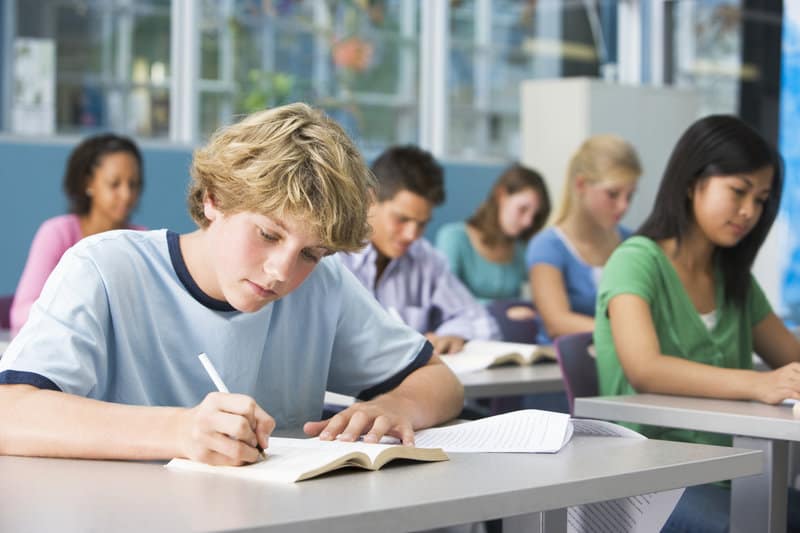
It’s no mystery that children suffer from the effects of divorce when parents separate and suffering can hurt a child’s school performance, social interactions, and a sense of self.
It is not easy to navigate the role of “adult getting divorced” and “parent,” but the more you can do to positively support your child’s process and provide the mental/emotional support they need, the better off they will be at school, at home, and in the world-at-large.
FYI: Children are not alone. Divorce can also impact a parent’s work performance. Read The Effects of Divorce on Work Performance to learn more about how to support yourself through the process as well.
Statistics Around Divorce And Its Impact On School Performance
Some studies have shown that students with divorced parents:
- Have lower overall GPAs
- Are more likely to have to repeat a grade
- Have lower comprehension scores
- More likely to have behavior and impulsivity issues at school
- Are less likely to attend/graduate college
While that sounds bleak, more recent and comprehensive studies indicate there’s more to it than that. Statistics from a recent UCLA study on divorce and its impact on school performance took a bigger-picture view.
Researchers divided families into three different groups: couples unlikely to divorce, couples more likely to get a divorce, and those who fell in the middle.
- In families in the “unlikely to divorce” group, children of divorced parents were 6 percent less likely than children of non-divorced parents to graduate from high school and 15 percent less likely to complete college
- For children in the “likely to divorce” group, there was virtually no impact on their likelihood to graduate from high school or college if their parents’ marriage ended. The paper noted that children in that group already have lower levels of academic achievement — so a divorce generally didn’t make things better or worse for them.
Ultimately, it seems like socio-economic stability, and emotionally healthy home has more to do with academic success than divorce rates. While divorce often causes temporary or semi-long term ripples in a child’s behavior or academic progress, an emotionally healthy and supportive household allows children to regain their traction.
The Psychological Effects Of Divorce On Children
It’s also important to remember that a decline in academics or escalating behaviors at school is a normal response to emotional upset.
Your honest communication and preparation are essential
According to verywellfamily.com:
Children from divorced families don‘t always perform as well academically. However, a study published in 2019 suggested kids from divorced families tended to have trouble with school if the divorce was unexpected, whereas children from families where divorce was likely didn’t have the same outcome.
Read 5 Tips For Helping Children Cope With a Divorce for more information on how to support your children (and yourself) through the process.
Emotional impacts affect the ability to concentrate or focus
The emotional impacts of divorce are like a continued ripple effect. There are so many things going on at the same time. In addition to losing the security of two parents who live together and a familiar home landscape, many children must move to a new home, change schools, make new friends, or change sports teams – all amid their personal, all-time low.
Children often feel they’re somehow to blame for the divorce, or that if they were “good enough” the parent who has moved out or changed houses would have stayed, etc. etc. All of this diminishes their ability – and their will – to focus on academics.
Negative feelings are painful to hold, and they’re difficult to express, which means they can come out in detrimental ways.
Children may outwardly resent and punish you
If academics are a household value, your children may also use academic decline, disruptive behavior at school, or negative peer interactions to punish you. This is a call for help, and any notable decline in academics, social isolation, or atypical behavior issues at school should be handled with care and close attention if it doesn’t resolve in a reasonable amount of time.
Informing the school can instrumentally help
Telling the teacher, administration, and counselor can be instrumental in helping your child. While you may feel as if the information is private or embarrassing, the faculty’s awareness of your child’s experience can exponentially support your child as s/he adjusts to the new version of normal. Together, you can collaborate on the best ways to support the child, tailored to his/her personality and needs and the school may be able to offer counseling support as needed, as well as space to take breaks or vent.
Contact the Law Offices of Gerald Falzone to work with a Bay Area family law attorney who specializes in mediation and whole-family divorce support to improve the family’s emotional wellbeing.
